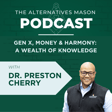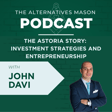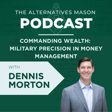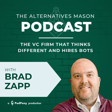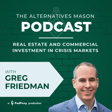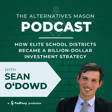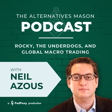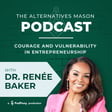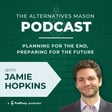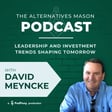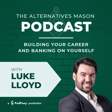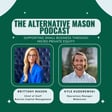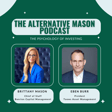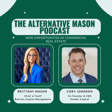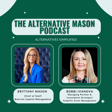
The Alternatives Mason: Building Alts Knowledge Brick by Brick | Episode 19 | Understanding and Overcoming Financial Abuse Featuring Jacqueline Schadeck
Welcome to The Alternatives Mason: Building Alts Knowledge Brick by Brick. Banrion Capital Management uses technology to help independent advisors scale and educate themselves on alternative investments. Since education is such a big piece of the Banrion mission and business, we are excited to kick off this series to dive into the nits and grits of the alternatives space. Episode 19 "Understanding and Overcoming Financial Abuse" features Jacqueline Schadeck, Founder of Golden Wealth Strategies.
After witnessing her mother fall victim to poor financial advice that cost her family everything, Jacqueline Schadeck set out to become a go-to resource for financial guidance. She has helped high-net-worth clients keep and grow their assets over the past decade, and is now a trusted partner in creating generational wealth.
Jacqueline is a CERTIFIED FINANCIAL PLANNER™ (CFP®) professional who helps individuals and families gain financial clarity. Offering both insurance and investment products and services, she believes people need comprehensive financial guidance to make the best decisions. Jacqueline has been asked to contribute to numerous media outlets, including CNBC, MarketWatch and Atlanta Business Chronicle. In any given week, you might find her leading financial education presentations for a local AARP chapter or explaining the tax code at a public library education session. She was even honored with the Impact Award by the Financial Planning Association of Georgia for her dedication to the industry. Jacqueline is also the host of PBS Atlanta's "My Money Mentors", a half-hour docu-reality series dedicated to making financial literacy enjoyable and empowering for young adults.
In keeping with her desire to help others, Jacqueline gives back to her community by volunteering for various organizations. These include her church, several non-profits and her college alma mater, Kennesaw State University, where she played basketball for the Owls on scholarship and graduated cum laude with a bachelor’s degree in finance. Jacqueline is also a past board member for the Financial Planning Association of Georgia.
Connect with Jacqueline:
Learn More About Golden Wealth Strategies: Golden Wealth Strategies
Connect with Jacqueline on Instagram: @jacquelineplans
Connect with Jacqueline on 𝕏: @Jacquelineplans
Connect with Jacqueline on LinkedIn: Jacqueline Schadeck Check out Jacqueline's Show: My Money MentorsLearn More About Banrion: Banrion Capital Management
Follow Brittany on 𝕏: @Brittany_Mason
Follow Banrion on 𝕏: @Banrion_Capital
Subscribe to our YouTube Channel: @BanrionCapital
Important Disclosures:
The opinions expressed on the “The Alternative Mason Podcast” are for general informational purposes only and are not intended to provide specific advice or recommendations for any individual or on any specific security.
It is only intended to provide education about the financial industry. To determine which investments may be appropriate for you, consult your financial advisor prior to investing. Any past performance discussed du

